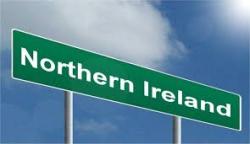By Harry Hutchinson, Labour Party Northern Ireland
For the first time ever Nationalists have more seats at Westminster than Unionists. The Democratic Unionist Party (DUP) returning 8 seats (down by two), and Sinn Fein/ Social-Democratic and Labour Party (SDLP) going one better with 9; Nationalists in Northern Ireland have an unprecedented electoral gain for the first time since the formation of the state in 1921.
Unofficial pacts between Sinn Fein and the SDLP cleared the way for the two parties to make gains in Belfast North and Belfast South respectively. In Belfast North, Sinn Fein’s John Finucane, the son of a murdered solicitor Pat, who specialised in criminal defence work and acted on behalf of IRA members, defeated the prominent Westminster representative Nigel Dodds, deputy leader of the DUP.
The SDLP regained the seat in Foyle from Sinn Fein, once held by the civil rights activists John Hume, in a landslide majority of almost 3 to 1. The liberal non-sectarian Alliance Party gained only their second-ever seat at Westminster, surprising pundits by out-polling the DUP in North Down, the seat once held by the Independent Lady Hermon.
As Labour Northern Ireland are denied the right to stand in NI elections as Labour Party candidates, we backed the Independent Labour candidate Caroline Wheeler, who received just over 700 votes. Caroline received backing from socialists, trade unions and anti-mining groups in the area of Fermanagh and South Tyrone and also from Left Horizons.
The election has shown again a move away from the extreme parties of the DUP and Sinn Fein, whose vote percentages have fallen by 5.4% and 6.7% respectively. The benefactor has been the Alliance Party whose share of the vote has gone up by 8.8%. People Before Profit also increased their vote in the Nationalist heartland of West Belfast by 2000 from the previous election, although they were far short of Sinn Fein.
Green Party candidates stood aside
The pact between Sinn Finn and the SDLP was branded as a ‘EU remain’ pact, where even the Green Party stood aside in many constituencies, urging people to vote remain candidates. The Greens were seen as giving indirect support to Sinn Fein and SDLP and ignoring environmental issues in the interest of sectarian politics.
The election was again dominated by the constitutional questions; however the continuing absence of Stormont, now suspended for over two and a half thousand days and with Members of the Assembly still receiving their salaries, angered many voters, in a overall turnout of just 61.8%. The issue of the ‘cash for ash’ scandal of corrupt Stormont ministers squandering £500m of tax-payers’ money to businesses still resonates among people in here.
With the influence of the DUP greatly undermined at Westminster in forcing a hard Brexit on behalf of the corporations and their vote being eroded in elections, the party is now prepared to re enter talks to restore the NI Assembly. Pressure from health employers are also urging Stormont to be up and running again as they face a health general strike from four health unions demanding pay and investment in a collapsed NHS, with one in six of the population waiting a consultant referral. The DUP and Sinn Fein coalition will have no alternative but to go back into government.
December 17, 2019



